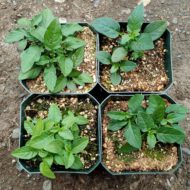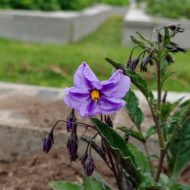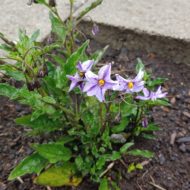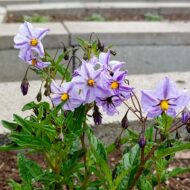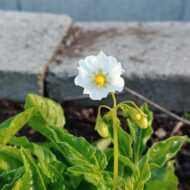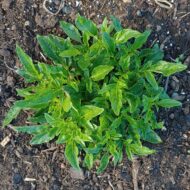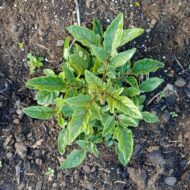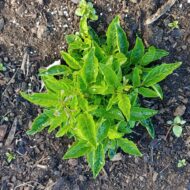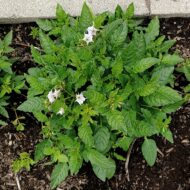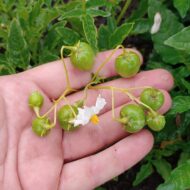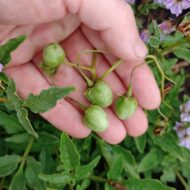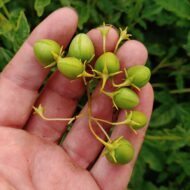Solanum paucissectum
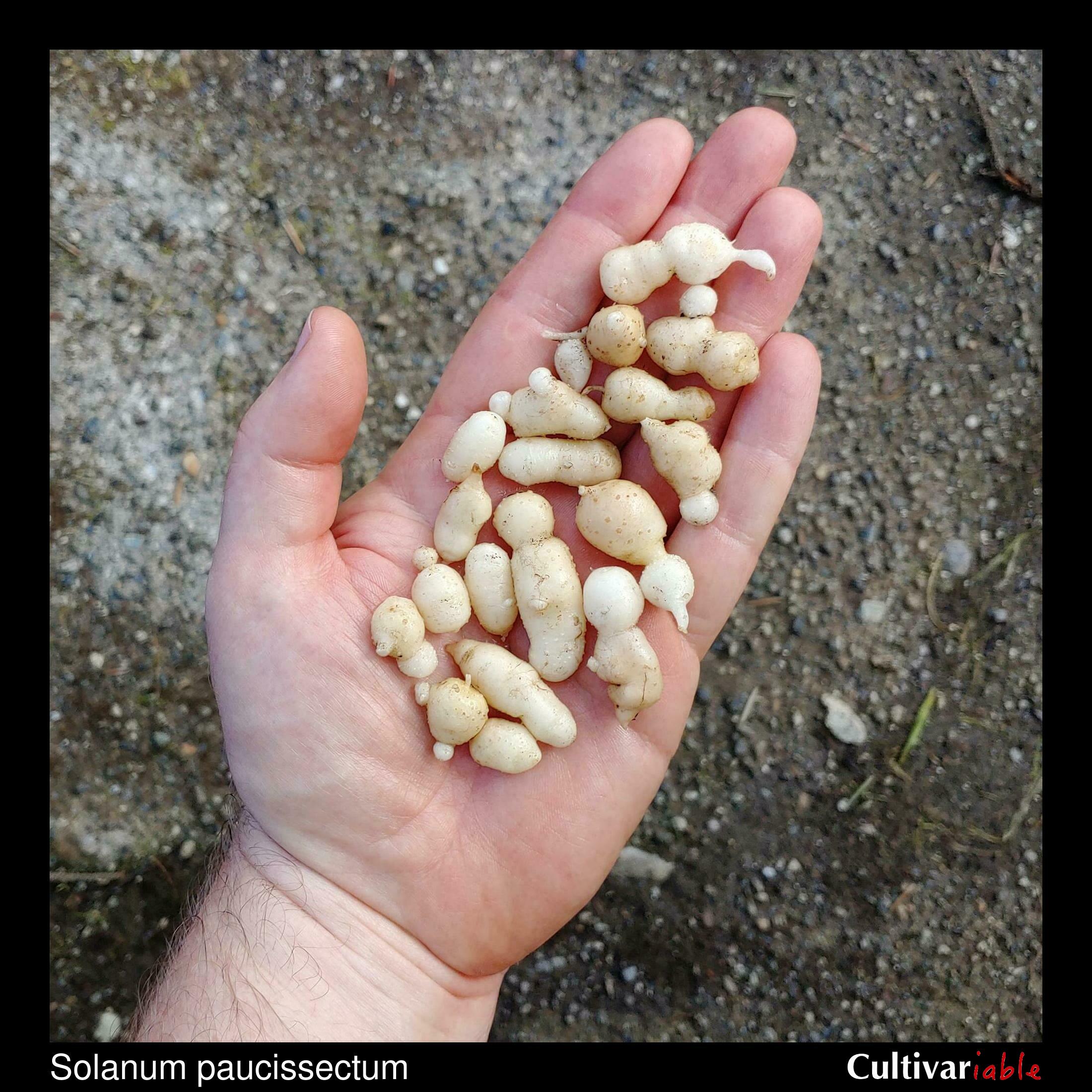
| Common Names | |
| Code | pcs |
| Synonyms | |
| Clade | 3 |
| Series | Piurana |
| Ploidy | Diploid (2x) |
| EBN | 2 |
| Tuberization Photoperiod | Unknown |
| Self-compatibility | Unknown |
| Nuclear Genome | P |
| Cytoplasmic Genome | Unknown |
| Citation | Ochoa: Agronomía (Lima) 27: 365. 1960. |
Description
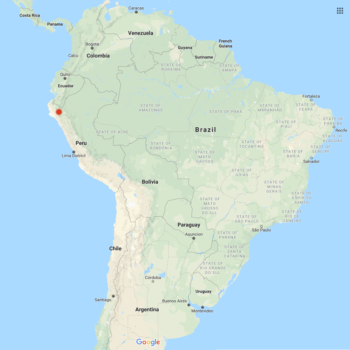 Solanum paucissectum is a wild potato from Peru. Plants are usually low-lying, sometimes as much as two feet tall. Flowers white to light blue. Berries small and ovoid.
Solanum paucissectum is a wild potato from Peru. Plants are usually low-lying, sometimes as much as two feet tall. Flowers white to light blue. Berries small and ovoid.
The specific epithet, paucissectum, means “poorly divided,” presumably referring to the arrangement of the leaflets. It is formed from the Latin words “paucus,” for “few,” and “sectum,” for “cut.” While there is no completely standardized pronunciation for scientific names, the most common way to pronounce this species is probably so-LAY-num pau-sih-SEK-tum.
Jarvis (2008) predicts that this species will lose 95% of its present range by 2055 due to climate change, most likely entailing a critical loss of genetic diversity.
Resistances
Vega (1995) found that this species is much more frost tolerant than domesticated potato. This is often true in low growing species.
| Condition | Type | Level of Resistance | Source |
|---|---|---|---|
| Alfalfa Mosaic Virus (AMV) | Virus | Resistant | Horvath 1989 |
| Leptinotarsa decemlineata (Colorado Potato Beetle) | Invertebrate | Resistant | Pelletier 2007 |
| Phytophthora infestans (Late Blight) | Fungus | Resistant | Villamon 2005 |
| Potato Virus X (PVX) | Virus | Resistant | Horvath 1989 |
| Tobacco Rattle Virus (TRV) | Virus | Resistant | Horvath 1989 |
Glykoalkaloid content
I have found no accounts of glycoalkaloid content for this species. Tubers that I have tasted were mildly to moderately bitter.
Images
Cultivation
I have found this species difficult to germinate and with poor seedling survival, but that could be a consequence of choosing the wrong accessions. I have now managed to get enough seedlings to propagate from the two USDA accessions, so we’ll hopefully soon be able to test fresh seed.
Accessions Evaluated
The following accessions were examined to prepare this profile. I have evaluated 3/3 accessions currently available from the US potato genebank.
PI 365340
Poor germination but reasonably strong seedling growth. White flowers and green stems.
PI 473489
Poor and irregular germination and weak seedling growth. It did eventually produce a few healthy plants though. White flowers and green stems.
PI 590922
An in vitro accession from Piura, Peru. Certainly the easiest way that I found to grow this often difficult to germinate species. Blue flowers and dark stems. CIP public domain MTA.
Breeding
Crosses with S. tuberosum
| Female | Male | Berry Set | Seed Set | Germination | Ploidy | Source |
| S. tuberosum 4x | S. paucissectum | None | None | Jackson (1999) | ||
| S. tuberosum 2x | S. paucissectum |
Yes | Low | Villamon 2005 | ||
| S. paucissectum | S. tuberosum 4x | None | None | Jackson (1999) | ||
| S. paucessectum |
S. tuberosum 2x |
Yes | No | Villamon 2005 |
Crosses with other species
Jackson (1999) found 6% 2n pollen for varieties of this species.
| Female | Male | Berry Set | Seed Set | Germination | Ploidy | Source |
References
Solanum paucissectum at Solanaceae Source

